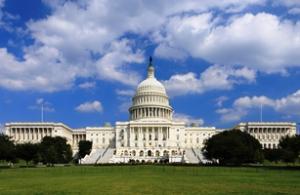When it comes to ingesting LSD, sometimes the medium is the message.
A Delaware bill to allow medical marijuana dispensaries to jumpstart legal adult-use sales awaits the governor's signature, Kansas lawmakers will take up medical marijuana in an interim session, and more.
The Thai government has taken another step toward decriminalizing marijuana, North Carolina's Eastern Band of Cherokees began selling adult-use weed on July 4, and more.
The Florida marijuana legalization initiative is well-funded but its opposition could be too, Missouri pot tax revenues flow to drug treatment, veterans, and legal services for the poor, and more.
Lawmakers in Kansas will spend two days of an interim session on medical marijuana hearings, Malaysian drug experts laud their government for moving toward drug decriminalization, and more.
A House Homeland Security subcommittee heard about the threat of Mexican cartel drones, California's governor will campaign against an initiative to roll back drug and sentencing reforms, and more.
The Florida marijuana legalization initiative is well-funded but its opposition could be too, Missouri pot tax revenues flow to drug treatment, veterans, and legal services for the poor, and more.
Blotter: The Untold Story of an Acid Medium by Erik Davis (2023, MIT Press, 248 pp., $32.95 PB)
A few years ago, I made one of my rare ventures into the art world by bidding on and winning a blotter art print as part of a benefit for the Multidisciplinary Association for Psychedelic Studies. It is 9" x 9" and contains 225 perforated squares with a profile view of a bearded man over an undulating palette of colors. It does not contain any LSD but is quite striking.
A few decades ago, I made many not-so-rare ventures into the world of blotter acid, eagerly placing one or two of those LSD-impregnated blotter squares on my tongue before blasting off to new dimensions. Many of those blotter hits had no design on them, merely tinted or even plain white paper, but others featured images, some humorous, some esoteric: dancing Grateful Dead bears, JR "Bob" Dobbs heads, psychedelic saints, or just trippy swirls.
In Blotter, journalist and counterculture maven Erik Davis explores and illuminates the phenomenon of blotter acid -- both as a delirium-loaded medium for hyper-potent psychedelic substances and as a drug-free but drug-induced form of psychedelic art. What a long, strange trip it's been, and what memories it stirs up in old hippies of a certain age.
Davis reviews legendary acid producers, with names like Humphrey Owsley and Nick Sands gaining prominent mention, as he describes the evolution of LSD dosing from sugar cubes to pills and blotter paper. But he also introduces a cavalcade of lesser-known LSD producers and blotter acid makers as he traces the evolution of LSD and psychedelic culture from the 1960s to the present.
He has interesting observations about the trade in acid, noting that it was often not (only) profit but a sort of psychedelic evangelism or militance that impelled the distribution of the consciousness-altering substance. Early adopters believed the acid experience could not only change your consciousness; it could change the world. Sometimes they gave it away for free; not the behavior of your stereotypical dope dealer.
And it was always inexpensive; in part because of that psychedelic evangelism -- the object was not to get rich but to better the world -- but also because of the economics of its production. LSD is so potent that anyone producing even small batches is producing hundreds of thousands if not millions of doses at a time. And it is still a bargain producing a whole lot of bang for $5 or $10 to this day. You can trip for eight hours for less than it costs to buy a hamburger.
While Blotter is a book about psychedelic culture, it is also a book about art. Blotter acid was and remains illegal, but blotter art plays a role in the contemporary art scene. The art blotter contains no LSD but the psychedelic spirit lives within it -- the joy and playfulness, the humor and mysticism and radicality. And it makes fascinating art, which Blotter is full of. There must be hundreds of images of blotter art; the entire second half of the book is little more than images and their descriptions.
Erikson centers his book on San Francisco artist, professor, and occasional federal criminal defendant Mark McLoud, curator of one of the largest archives of blotter art in existence, the Institute for Illegal Images. McCloud played a key role in moving blotter art from the realm of the criminal into the realm of the arts, and successfully fended off the feds by convincing a Kansas City jury that blotter art was art -- not dope (which it wasn't—even blotter that has been doses becomes inert over time as the LSD is exposed to light and air).
He is also an astute commentator on contemporary psychedelic culture, and his final words to the community are worth quoting in full. Remarking on LSD's position as a Western, industrial creation and noting many leaders in activists in the psychedelic space are demanding that Indigenous groups get both a place at the table and a share of the profits, Davis writes:
"Such reciprocity efforts are far from cosmetic. They concretely acknowledge the enormous debt that all psychedelic people owe to those savaged but vital communities whose healers and medicine wizards developed and continue to maintain visionary plant and fungi traditions for centuries and presumably millennia. But we also owe a debt to the hippie freaks, renegade chemists, pranksters, midwives, healers, dealers, guitarists, poets, mystics, burners, artists, and DJs of the deep acid underground. However half-baked, dangerous, or even batshit their practices, these folks -- often low-profile by necessity -- still hold powerful medicine for those of us psychedelicizing themselves within WEIRD societies: Western, educated, industrial, rich, and (more or less) democratic. These folks are our "ancestors" -- even the Hells Angels and bad brujos of the CIA. Acid history may look like a profane mess, but it is also a sacred struggle, and like all such esoteric agons, you have to approach it elliptically through patterns and symbols, and tricksy media that might only send you further into forests of whatthefuck. That's the deeper message of the Institute for Illegal Images, which is not just a collection of artifacts but a wayward memory palace, an iconostasis of initiation and synchronicity, a comic-book collage of igniting signs, and the inevitable cracks between them."
What he said.
back to top
A Delaware bill to allow medical marijuana dispensaries to jumpstart legal adult-use sales awaits the governor's signature, Kansas lawmakers will take up medical marijuana in an interim session, and more.
Arkansas
Arkansas Medical Marijuana Amendment Campaign Hands in Signatures. Arkansans for Patient Access (APA), the group behind the Arkansas Medical Cannabis Amendment, has handed in 114,402 raw signatures to state officials. The campaign needs 90,704 valid voter signatures to qualify for the November ballot.
Voters in the state approved medical marijuana in 2016, but patients, especially those in rural areas, have complained about lack of access to their medicine. This initiative would ease access by allowing health practitioners -- not just doctors -- to recommend medical marijuana and by allowing recommendations via telemedicine.
"Our canvassers found voters eager to place an amendment on the ballot that will eliminate barriers to access and make it less expensive to acquire and keep a medical marijuana card," said Bill Paschall, APA campaign committee member. "As we move into the fall, we look forward to educating Arkansans all across the state about this amendment and the medicinal benefits of marijuana," Paschall said.
If passed, the amendment would also allow patients to grow their own plants at home and eliminate annual patient card renewals and fees.
Delaware
Delaware Legislature Approves Bill to Allow Medical Marijuana Dispensaries to Start Selling to All Adults. In a bid to speed up the emergence of a legal marijuana marketplace, lawmakers have approved a bill that would allow existing dispensaries to apply for "conversion" licenses to be able to sell in the adult-use market, House Bill 408. The bill also specifies that funds from licensing will go to support social equity applicants.
When lawmakers approved marijuana legalization last year, there was no path for medical marijuana dispensaries to move into the adult-use market. If Gov. John Carney (D) signs the bill into law, adult sales could begin by March or April of next year.
"They're already established here," said state marijuana commissioner Rob Coupe, who helped draft the bill. "They're good businesses that were established in Delaware based on our need. They've been contributing to our employment; they've been contributing to taxes; they're providing the service to the patients. So, it's good business for us to create a pathway for them."
The medical marijuana operators would have to be $100,000 for manufacturing, testing, and retail permits and $200,000 for cultivation permits to transit into the adult-use market. That is the money that will go to social equity applicants.
"House Bill 408 has the potential to raise up to $4.2 million in licensing fees," Sen. Trey Paradee (D) explained during the debate. "That money will then be used to help launch and support the social equity licenses in the form of grants."
Kansas
Kansas Lawmakers to Devote Two Days of Interim Session to Medical Marijuana Hearings. The state's Legislative Coordinating Council, which is made up of Republican and Democratic leadership in the House and Senate, has acceded to a request from Sen. Michael Fagg (R) for a hearing on options for developing a medical marijuana bill ahead of the 2025 legislative session.
"Although the Legislature has worked to address medical marijuana, further study is needed," Fagg said.
Fagg also pointed to the looming federal rescheduling of marijuana as another reason to hold the hearings. "The special committee would also study the impact of this reclassification," he said.
Kansas is one of only a handful of states that have yet to adjust their marijuana laws to accommodate medical marijuana.
The legislative leadership has allocated two days for medical marijuana discussions out of 56 days to debate various policy issues in the interim.
back to top
Marijuana Policy
The Thai government has taken another step toward decriminalizing marijuana, North Carolina's Eastern Band of Cherokees began selling adult-use weed on July 4, and more.

Smalltime federal pot arrest records could go up in smoke under an expungement bill filed last week. (usmarshals.gov)
. A bipartisan pair of lawmakers, Reps. Troy Carter (D-LA) and Kelly Armstrong (R-ND), last week filed a
bill that would create a mechanism for expunging minor federal marijuana convictions and clearing non-felony pot offenses currently in the federal judicial system.
The bill "would deliver justice for countless Americans whose lives have been disrupted and deprived because of a misdemeanor marijuana offense," the pair said.
"No one should be in jail just for using or possessing marijuana. This bipartisan bill will restore justice to millions of Americans who have suffered excessive secondary consequences associated with marijuana-related misdemeanors," said Carter. "These misdemeanors, even without a conviction, can restrict the ability to access educational aid, housing assistance, occupational licensing, and even foster parenting. Delivering justice for people who have been impacted by marijuana-related misdemeanors is a vital part of comprehensive cannabis reform."
The bill has now been assigned a number, HR 8917, and has been referred to the House Judiciary Committee.
North Carolina Eastern Band of Cherokees Members Can Now Buy Weed. What had been the Great Smoky Cannabis Company medical marijuana dispensary has transformed into the Great Smoky Cannabis Company adult-use retail marijuana outlet for members of the Eastern Band of Cherokee Indians and any other federally recognized tribe. The change, and the first legal sale of adult-use marijuana, occurred on the 4th of July.
The tribe overcame opposition from state Republican political figures and a Republican congressman to achieve this benchmark.
Any member of a recognized tribe who is 21 or over and has a tribal membership card can show up and buy weed.
Medical marijuana patients can continue to purchase their medicine at the shop and need not be tribal members.
Psychedelics
CA Lawmakers Approve Bill to Break Psychedelic Research Logjam. The Assembly last week gave final approval to a bill that aims to streamline research applications for psychedelics and marijuana, Assembly Bill 2841. The Assembly passed the bill earlier, but it was amended in the Senate, and the Assembly voted to accept those changes last week.
The legislation is meant to address a large number of psychedelic study applications piling up at the Research Advisory Panel of California (RAPC), which must approve any research. Currently, nearly 70 research proposals are pending.
The RAPC has not met since last August, when a policy change blocked it from holding closed-door meetings. The panel decided to suspend its activities because it is barred under existing law from publicly disclosing trade secrets and other confidential information. The bill would allow the panel to return to closed-door meetings, freeing it to take on the backlog.
The panel would have to report to lawmakers on its progress in addressing the backlog by January 1, 2026.
The bill is now on the desk of Gov. Gavin Newsom (D).
International
Thai Government Takes Step Toward Recriminalizing Marijuana. A committee under the Ministry of Public Health has voted unanimously to reclassify marijuana and hemp as narcotics, a change set to go into effect on January 1. The decision will now be reviewed by the Narcotics Control Board and if approved, sent to the Food and Drug Administration to adjust existing marijuana-related legislation and set usage guidelines.
The committee agreed unanimously that marijuana should be used only for medicinal purposes, not recreational ones.
Under the new classification, any cannabis products containing more than 0.2 percent THC will be considered narcotics. Branches, roots, and seeds are exempt.
The previous government had liberalized the country's marijuana laws but was unable to get unambiguous decriminalization legislation through the parliament. The current government came to power vowing to undo the reforms, and now it is moving to do so.
back to top
The Florida marijuana legalization initiative is well-funded but its opposition could be too, Missouri pot tax revenues flow to drug treatment, veterans, and legal services for the poor, and more.

Republican lawmakers in the capitol continue to try to wreak havoc with marijuana reforms. (Creative Commons)
GOP Congressional Panel Directs Biden Admin to Explain Marijuana Rescheduling Decision, Saying It's 'Concerned' About 'Deviations.' The GOP-led House Appropriations Committee issued a report Wednesday calling on the Biden administration to explain how it came to the decision to reschedule marijuana. The report for the appropriations bill for Agriculture, Rural Development, and the Food & Drug Administration (FDA) demands that the inspector general for the Department of Health and Human Services (HHS) explain to Congress the FDA's 2023 scientific review into marijuana, which led to its recommendation that marijuana be rescheduled.
The inspector general's report would have to look at "deviations" from the traditional analytical process, justifications for the policy shift, and why marijuana was compared to certain drugs over others to reach its conclusion. The implicit criticism of the review process echoes the talking points of the prohibitionist group Smart Approaches to Marijuana, which has taken credit for influencing lawmakers to stake out anti-marijuana reform positions.
In the committee report's section on marijuana scheduling, the committee said: "The Committee is concerned about deviations from established drug scheduling evaluation standards in the FDA 2023 marijuana scheduling review. The Committee directs the HHS Inspector General to complete a report on the 2023 marijuana scheduling review including but not limited to: deviations from the established five-factor currently accepted medical use test, justification for a new, two-factor currently accepted medical use test and whether this will be the standard for all future reviews, use of a limited number of hand-selected comparator substances, and inclusion of research results that are not statistically significant or inconclusive. The Committee is concerned about reports of the mental health hazards of regular use of high-potency marijuana, particularly among adolescents. The Committee encourages the FDA to support research on high-potency marijuana and its effects on the adolescent brain, specifically regarding addiction and mental illness such as schizophrenia or psychosis."
Florida Marijuana Legalization Initiative Campaign Faces Well-Funded, Organized Opposition. The Amendment 3 marijuana legalization initiative from Smart & Safe Florida is now facing a heavily funded opposition campaign. Florida Gov. Ron De Santis recently created the Florida Freedom Fund, which can receive unlimited donations aimed at achieving the fund's goals.
Chief among those goals is defeating Amendment 3, which De Santis has opposed. The fund will also be used for another socially conservative goal: targeting an initiative that seeks to overturn a restrictive abortion law he signed earlier this year.
The Amendment 3 campaign currently enjoys a huge funding advantage over the opposition, with a single company that stands to profit from the legalization model, Trulieve, already shelling out nearly $40 million for the campaign. But conservatives and hemp industry interests, who think they will lose out under the Florida legalization model, could help fill the Florida Freedom Fund's coffers.
Because it is a constitutional amendment, the initiative must garner 60 percent of the vote to pass. It is currently polling above that.
Missouri Marijuana Revenues Fund Drug Treatment, Veterans Health, Legal Services. The state Department of Health and Senior Services announced Thursday that officials had transferred nearly $11 million in marijuana tax revenues to three programs: drug treatment and recovery, veterans health services, and legal assistance for the poor.
The Missouri Veterans Commission, the Missouri State Public Defender, and the Department of Health and Senior Services each received $3,639,448. The Veterans Commission must use the funds exclusively for health care for veterans and their families, while the Public Defender must use the funds to provide legal assistance to low-income residents.
The Department of Health and Senior Services will use its funds to pay for a grant program to increase access to "evidence-based, low-barrier drug addiction treatment prioritizing medically proven treatment and overdose prevention and reversal methods" as well as "an emphasis on reintegrating recipients into their local communities." To that end, the proceeds will also support overdose prevention education, job placement, housing and counseling for people with substance use disorders.
The nearly $11 million in distributed pot tax revenues announced this week is in addition to another $19 million in distributed pot tax revenues announced in May. Altogether, legal marijuana has generated $58 million in tax revenues, with the remainder going to be operating costs and the costs of court expungements of past marijuana convictions. The state legalized marijuana in 2022.
"It is so rewarding to see the impact of this voter-approved program on organizations that provide vital services to Missourians," said Amy Moore, director of the Division of Cannabis Regulation, part of DHHS.
Medical Marijuana
Ohio Medical Board Rejects Adding Autism and Female Orgasmic Disorder to List of Qualifying Conditions. The State Medical Board has rejected bids to add autism and female orgasmic disorder to the list of qualifying conditions for medical marijuana.
Advocates and lawmakers have fought for years to get autism added to the list of conditions but continue to be rejected by the board even though several other states, including neighboring Michigan and Pennsylvania, do allow it.
Similarly, the board has refused to allow medical marijuana for female orgasmic disorder even though a 2022 study found it can be improved with marijuana use. Connecticut's Medical Marijuana Board of Physicians has approved it for use to treat the condition there, and an Illinois panel has also voted to make it a qualifying condition for medical marijuana.
The state currently has 26 qualifying conditions for medical marijuana:
- AIDS
- Amyotrophic lateral sclerosis
- Alzheimer's disease
- Cachexia
- Cancer
- Chronic traumatic encephalopathy
- Crohn's disease
- Epilepsy or another seizure disorder
- Fibromyalgia
- Glaucoma
- Hepatitis C
- Huntington's disease
- Inflammatory bowel disease
- Irritable bowel syndrome
- Multiple sclerosis
- Pain that is either chronic and severe or intractable
- Parkinson's disease
- Positive status for HIV
- Post-traumatic stress disorder
- Sickle cell anemia
- Spasticity
- Spinal cord disease or injury
- Terminal illness
- Tourette syndrome
- Traumatic brain injury
- Ulcerative colitis
back to top
Lawmakers in Kansas will spend two days of an interim session on medical marijuana hearings, Malaysian drug experts laud their government for moving toward drug decriminalization, and more.

Mexican federal forces are seizing loads of methamphetamine, but fentanyl? Not so much. (Creative Commons)
Kansas Lawmakers to Devote Two Days of Interim Session to Medical Marijuana Hearings. The state's Legislative Coordinating Council, which is made up of Republican and Democratic leadership in the House and Senate, has acceded to a request from Sen. Michael Fagg (R) for a hearing on options for developing a medical marijuana bill ahead of the 2025 legislative session.
"Although the Legislature has worked to address medical marijuana, further study is needed," Fagg said.
Fagg also pointed to the looming federal rescheduling of marijuana as another reason to hold the hearings. "The special committee would also study the impact of this reclassification," he said.
Kansas is one of only a handful of states that have yet to adjust their marijuana laws to accommodate medical marijuana.
The legislative leadership has allocated two days for medical marijuana discussions out of 56 days to debate various policy issues in the interim.
Psychedelics
Washington State Ballot Measure to Legalize Natural Psychedelics Looms. A campaign calling itself the Responsible Entheogen Access and Community Healing Coalition (REACH WA) has submitted a natural psychedelic legalization initiative to the secretary of state's office, the first step in putting the potential measure before the voters.
The initiative would legalize the personal possession of several plant- and fungi-based psychedelics, including psilocybin, mescaline, and DMT, and people could grow and share their own psychedelics without remuneration. However, it would not allow commercial sales of the hallucinogens. Instead, it would permit paid "supportive services" where people who facilitate psychedelic experiences could get paid for their efforts, as is already the case in Oregon and Colorado.
REACH WA submitted the initiative to state officials about a month ago and was granted a formal ballot title and summary two weeks ago. That means signature gathering can now begin, but not for this year because the deadline for submitting signatures for initiatives to appear on the November ballot passed last week.
REACH WA's "submission for this legislative season was largely symbolic and to generate awareness for our campaign," the group said in a statement. "We are still working diligently to finalize our strategy, mobilize our supporters, and find financial backers. We are committed to refining and improving the language of our initiative, whether it's for a ballot initiative in 2026 or in hopes of finding a legislative sponsor. Ongoing input remains invaluable to us, particularly on key issues such as the advisory council, penalties for minors, and public use regulations."
The measure is now officially known as Initiative Measure 2076. If it appears on a ballot as currently written and is approved by voters, it would legalize the "noncommercial cultivation and transfer of natural psychedelics and the provision of supportive services for adults aged 21 and older."
International
Malaysia Drug Experts Laud Government for Moving in Direction of Drug Decriminalization. A group of drug policy experts organized as Drug Policy Program Malaysia is lauding the government for its efforts to move in the direction of more progressive and less repressive drug policies.
The group congratulated Home Minister Saifuddin Nasution "for his courageous decision in referring the amendments to the Drug Dependents (Treatment and Rehabilitation) (Amendment) Bill 2024 to the Parliamentary Special Committees on Health and Security."
It also commended the minister and members of parliament "for advancing a supportive and health-focused approach to addressing drug addiction, advocating for a shift away from punitive measures against drug users."
The Drug Policy Program Malaysia also said that "the outcome of the parliamentary debate favoring future decriminalization policies is particularly laudable, and we stand ready to assist the government in designing, implementing, monitoring, and evaluating these initiatives."
The group cited "significant negative consequences" of criminalizing drug use," including incarceration, overcrowded prisons, disease transmission, economic loss, stigma, discrimination, and substantial costs to both the government and the population."
"We urge the government, including the Home Ministry and the Ministry of Health, to utilize the newly formed National Task Force on Drug Decriminalization and concurrently revise major acts such as the DDA 1952 and Registration of Criminals and Undesirable Persons Act 1969, to ensure a comprehensive decriminalization policy for Malaysia," the group added.
Mexican Fentanyl Seizures Drop Sharply. The Mexican Defense Department released figures Tuesday showing that seizures of fentanyl have declined dramatically in the first half of this year. Mexican federal forces seized only 286 pounds of fentanyl so far this year, down 94 percent from the 5,135 pounds seized in 2023.
At the same time, during the first half of this year, Mexican federal forces seized 168 tons of methamphetamine, on pace with the 400 tons seized last year.
While both fentanyl and meth are exported to the US, meth is much more widely consumed inside Mexico than fentanyl, and Mexican security forces appear to be concentrating on that drug rather than fentanyl, which is blamed for about 70,000 overdose deaths a year in the US.
Another factor could relate to conflicts between rival drug trafficking organizations. With internal disputes in the Sinaloa cartel between the "Mayitos" (followers of Ismael "El Mayo" Zambada) and "Chapitos" (traffickers associated with the sons of Joaquin "El Chapo" Guzman, now imprisoned in the US), the two factions may be ratting out the others' meth loads to authorities, accounting for more meth seizures. The conflict may also be affecting the fentanyl trade.
"The war within the Sinaloa cartel between Mayo Zambada and the "Chapitos" may also be playing a role in reducing the number of shipments of fentanyl," said Mexican security expert David Saucedo. "The war between those groups is occurring in cities and on routes that are used for shipping drugs to the border. The violence (between the two factions) inhibits shipments, for fear of losing them along the route to the border."
back to top
Psychedelics
A House Homeland Security subcommittee heard about the threat of Mexican cartel drones, California's governor will campaign against an initiative to roll back drug and sentencing reforms, and more.

California Gov. Gavin Newsom (D) is stepping up to campaign against Prop 36, which would roll back drug and sentencing reforms. (ca.gov)
. State officials announced Wednesday that a psychedelic legalization initiative, the
Natural Psychedelic Substances Act, has qualified for the November ballot. The announcement came after organizers handed in a second round of voter signatures following the legislature's failure to act after a first round of signature-gathering put the question before lawmakers.
While the measure envisions the therapeutic administration of psychedelics, as has been approved by voters in Colorado and Oregon, it also allows for the home cultivation and use of the psychedelics. According to the state attorney general's summary of the measure:
"This proposed law would allow persons aged 21 and older to grow, possess, and use certain natural psychedelic substances in certain circumstances. The psychedelic substances allowed would be two substances found in mushrooms (psilocybin and psilocyn) and three substances found in plants (dimethyltryptamine, mescaline, and ibogaine). These substances could be purchased at an approved location for use under the supervision of a licensed facilitator. This proposed law would otherwise prohibit any retail sale of natural psychedelic substances. This proposed law would also provide for the regulation and taxation of these psychedelic substances."
"This proposed law would license and regulate facilities offering supervised use of these psychedelic substances and provide for the taxation of proceeds from those facilities’ sales of psychedelic substances. It would also allow persons aged 21 and older to grow these psychedelic substances in a 12-foot by 12-foot area at their home and use these psychedelic substances at their home. This proposed law would authorize persons aged 21 or older to possess up to one gram of psilocybin, one gram of psilocyn, one gram of dimethyltryptamine, 18 grams of mescaline, and 30 grams of ibogaine ("personal use amount"), in addition to whatever they might grow at their home, and to give away up to the personal use amount to a person aged 21 or over."
Here are the key details of the Natural Psychedelic Substances Act:
- Adults 21 and older could legally possess, grow, and share certain amounts of psychedelics.
- The covered psychedelics and possession limits are DMT (one gram), non-peyote mescaline (18 grams), ibogaine (30 grams), psilocybin (one gram), and psilocin (one gram). Those weight limits do not include any material that the active substances are attached to or part of.
- The penalty for possession of amounts of up to double the limit would be a $100 civil fine, with amounts above that remaining criminalized.
- A Natural Psychedelic Substances Commission would be created to oversee the implementation of the law and licensing of service centers and facilitators.
- The body, which is modeled on the state’s existing Cannabis Control Commission, would be required to enact rules for regulated access to at least one psychedelic by April 1, 2026. Regulations for the rest of the substances would need to be created by April 1, 2028. It would also need to start accepting applications by September 30, 2026.
- A Natural Psychedelic Substances Advisory Board would "study and make recommendations" to the commission about issues such as public health, regulations, training for facilitators, affordable and equitable access, traditional use of psychedelics, and future rules, including possible additions to the list of legal substances.
- Psychedelics purchased at licensed facilities would be subject to a 15 percent excise tax, and localities would have the option of imposing an additional two percent tax if they permit the centers to operate in their area. Revenue would be used to fund the regulation of the program.
- There are no provisions on expunging prior convictions for activities that would be made legal.
- Local governments could enact regulations on the time, location, and manner of service centers, but they could not outright ban them from operating in their area.
- Adults could propagate psychedelics in a maximum 12X12 ft. space.
- There would be civil legal protections related to professional licensure, child custody and public benefits for people who participate in a legalized psychedelic activity.
- The effective date of the law would be December 15, 2024. The commission and advisory board would need to be created by March 1, 2025.
Drug Policy
North Carolina "Gas Station Heroin" Ban Signed into Law. Gov. Roy Moore (D) on Monday signed into House Bill 250, which makes the formerly unregulated substance tianeptine a controlled substance, effectively banning its sale. Known colloquially as "gas station heroin" for its opioid-like effects and its sales at gas stations and convenience stores, it is used as an antidepressant in Europe but has not been federally regulated in the US.
It is sold under brand names such as ZaZa, Pegasus, Neptune's Fix and Tianna Red.
The Food & Drug Administration has warned against its use, but some states are not waiting for federal action. North Carolina now becomes at least the 12th state to ban it.
Foreign Policy
House Lawmakers Worry About Mexican Cartel Drones. A House Homeland Security Committee subcommittee held a hearing Tuesday about Mexican drug trafficking organizations' use of drone fleets to bring drugs and weapons across the US-Mexico border. Lawmakers heard from law enforcement officials and drone technology executives (who of course have products to sell and services to offer) about American airspace vulnerabilities to foreign drone incursions.
Witnesses warned lawmakers that the cartels, rich with prohibition profits, have more drones than the Border Patrol has equipment to detect them.
Carl Landrum, vice president of strategy at the drone tech company Dedrone and a former chief agent at the Border Patrol's Laredo station, said his agents had only two devices to spot drones along a 177-mile stretch of the border. He said that detection devices cost anywhere from $50,000 to $800,000.
"It is my understanding, for every drone flown by border security, the Mexican cartel is flying 17 drones," Rep. Dale Strong (R-AL) said during the hearing. "Data shows the Mexican cartel are flying drones greater than 30 miles into US airspace, landing and offloading drugs on US soil -- fentanyl, heroin, cocaine, marijuana, and the list continues."
Lawmakers, especially Republicans, have proven eager to target undocumented immigrants as vectors of drug smuggling, and now they are concerned about drones. But the DEA says the vast majority of drugs smuggled into the US from Mexico come via ports of entry at official border crossings.
Sentencing Policy
California Governor to Campaign Against Initiative to Roll Back Prop 47 Sentencing Reforms. A decade ago, state voters approved Proposition 47, which reduced penalties for some drug and other criminal offenses. Now, with a Republican-backed Homelessness, Drug Addiction, and Retail Theft initiative to roll it back by making some drug possession and theft charges felonies having already qualified for the November ballot and a potential Democratic alternative initiative having fallen by the wayside, Gov. Gavin Newsom (D) said Wednesday that he would campaign to defeat the rollback initiative.
He accused conservative backers of the initiative of deceiving voters about what they really intend and what the real consequences of passage would be, saying it could cost the state billions it doesn’t have to pay for increased incarceration.
"It's really drug policy reform that brings us back decades. I'm very concerned about that. I hope people take a close look at what they're proposing," Newsom said.
Prop 47 reduced most drug possession charges to misdemeanors and raised the threshold for property crimes to $950 for them to be charged as felonies. This year's initiative, now known as Proposition 36, would mandate drug treatment or prison for people with repeated drug possession convictions for certain drugs, including fentanyl and methamphetamine and make third offense theft a felony regardless of the amount.
Newsom said Wednesday that initiative backers were using the theft provisions as a distraction and that their true goal was to turn back progress on drug policy, sending thousands of people to prison.
"How are you going to pay for it?" Newsom asked. "Where are the billions of dollars going to come from? What programs?"
back to top
The Florida marijuana legalization initiative is well-funded but its opposition could be too, Missouri pot tax revenues flow to drug treatment, veterans, and legal services for the poor, and more.

Republican lawmakers in the capitol continue to try to wreak havoc with marijuana reforms. (Creative Commons)
GOP Congressional Panel Directs Biden Admin to Explain Marijuana Rescheduling Decision, Saying It's 'Concerned' About 'Deviations.' The GOP-led House Appropriations Committee issued a report Wednesday calling on the Biden administration to explain how it came to the decision to reschedule marijuana. The report for the appropriations bill for Agriculture, Rural Development, and the Food & Drug Administration (FDA) demands that the inspector general for the Department of Health and Human Services (HHS) explain to Congress the FDA's 2023 scientific review into marijuana, which led to its recommendation that marijuana be rescheduled.
The inspector general's report would have to look at "deviations" from the traditional analytical process, justifications for the policy shift, and why marijuana was compared to certain drugs over others to reach its conclusion. The implicit criticism of the review process echoes the talking points of the prohibitionist group Smart Approaches to Marijuana, which has taken credit for influencing lawmakers to stake out anti-marijuana reform positions.
In the committee report's section on marijuana scheduling, the committee said: "The Committee is concerned about deviations from established drug scheduling evaluation standards in the FDA 2023 marijuana scheduling review. The Committee directs the HHS Inspector General to complete a report on the 2023 marijuana scheduling review including but not limited to: deviations from the established five-factor currently accepted medical use test, justification for a new, two-factor currently accepted medical use test and whether this will be the standard for all future reviews, use of a limited number of hand-selected comparator substances, and inclusion of research results that are not statistically significant or inconclusive. The Committee is concerned about reports of the mental health hazards of regular use of high-potency marijuana, particularly among adolescents. The Committee encourages the FDA to support research on high-potency marijuana and its effects on the adolescent brain, specifically regarding addiction and mental illness such as schizophrenia or psychosis."
Florida Marijuana Legalization Initiative Campaign Faces Well-Funded, Organized Opposition. The Amendment 3 marijuana legalization initiative from Smart & Safe Florida is now facing a heavily funded opposition campaign. Florida Gov. Ron De Santis recently created the Florida Freedom Fund, which can receive unlimited donations aimed at achieving the fund's goals.
Chief among those goals is defeating Amendment 3, which De Santis has opposed. The fund will also be used for another socially conservative goal: targeting an initiative that seeks to overturn a restrictive abortion law he signed earlier this year.
The Amendment 3 campaign currently enjoys a huge funding advantage over the opposition, with a single company that stands to profit from the legalization model, Trulieve, already shelling out nearly $40 million for the campaign. But conservatives and hemp industry interests, who think they will lose out under the Florida legalization model, could help fill the Florida Freedom Fund's coffers.
Because it is a constitutional amendment, the initiative must garner 60 percent of the vote to pass. It is currently polling above that.
Missouri Marijuana Revenues Fund Drug Treatment, Veterans Health, Legal Services. The state Department of Health and Senior Services announced Thursday that officials had transferred nearly $11 million in marijuana tax revenues to three programs: drug treatment and recovery, veterans health services, and legal assistance for the poor.
The Missouri Veterans Commission, the Missouri State Public Defender, and the Department of Health and Senior Services each received $3,639,448. The Veterans Commission must use the funds exclusively for health care for veterans and their families, while the Public Defender must use the funds to provide legal assistance to low-income residents.
The Department of Health and Senior Services will use its funds to pay for a grant program to increase access to "evidence-based, low-barrier drug addiction treatment prioritizing medically proven treatment and overdose prevention and reversal methods" as well as "an emphasis on reintegrating recipients into their local communities." To that end, the proceeds will also support overdose prevention education, job placement, housing and counseling for people with substance use disorders.
The nearly $11 million in distributed pot tax revenues announced this week is in addition to another $19 million in distributed pot tax revenues announced in May. Altogether, legal marijuana has generated $58 million in tax revenues, with the remainder going to be operating costs and the costs of court expungements of past marijuana convictions. The state legalized marijuana in 2022.
"It is so rewarding to see the impact of this voter-approved program on organizations that provide vital services to Missourians," said Amy Moore, director of the Division of Cannabis Regulation, part of DHHS.
Medical Marijuana
Ohio Medical Board Rejects Adding Autism and Female Orgasmic Disorder to List of Qualifying Conditions. The State Medical Board has rejected bids to add autism and female orgasmic disorder to the list of qualifying conditions for medical marijuana.
Advocates and lawmakers have fought for years to get autism added to the list of conditions but continue to be rejected by the board even though several other states, including neighboring Michigan and Pennsylvania, do allow it.
Similarly, the board has refused to allow medical marijuana for female orgasmic disorder even though a 2022 study found it can be improved with marijuana use. Connecticut's Medical Marijuana Board of Physicians has approved it for use to treat the condition there, and an Illinois panel has also voted to make it a qualifying condition for medical marijuana.
The state currently has 26 qualifying conditions for medical marijuana:
- AIDS
- Amyotrophic lateral sclerosis
- Alzheimer's disease
- Cachexia
- Cancer
- Chronic traumatic encephalopathy
- Crohn's disease
- Epilepsy or another seizure disorder
- Fibromyalgia
- Glaucoma
- Hepatitis C
- Huntington's disease
- Inflammatory bowel disease
- Irritable bowel syndrome
- Multiple sclerosis
- Pain that is either chronic and severe or intractable
- Parkinson's disease
- Positive status for HIV
- Post-traumatic stress disorder
- Sickle cell anemia
- Spasticity
- Spinal cord disease or injury
- Terminal illness
- Tourette syndrome
- Traumatic brain injury
- Ulcerative colitis
back to top






